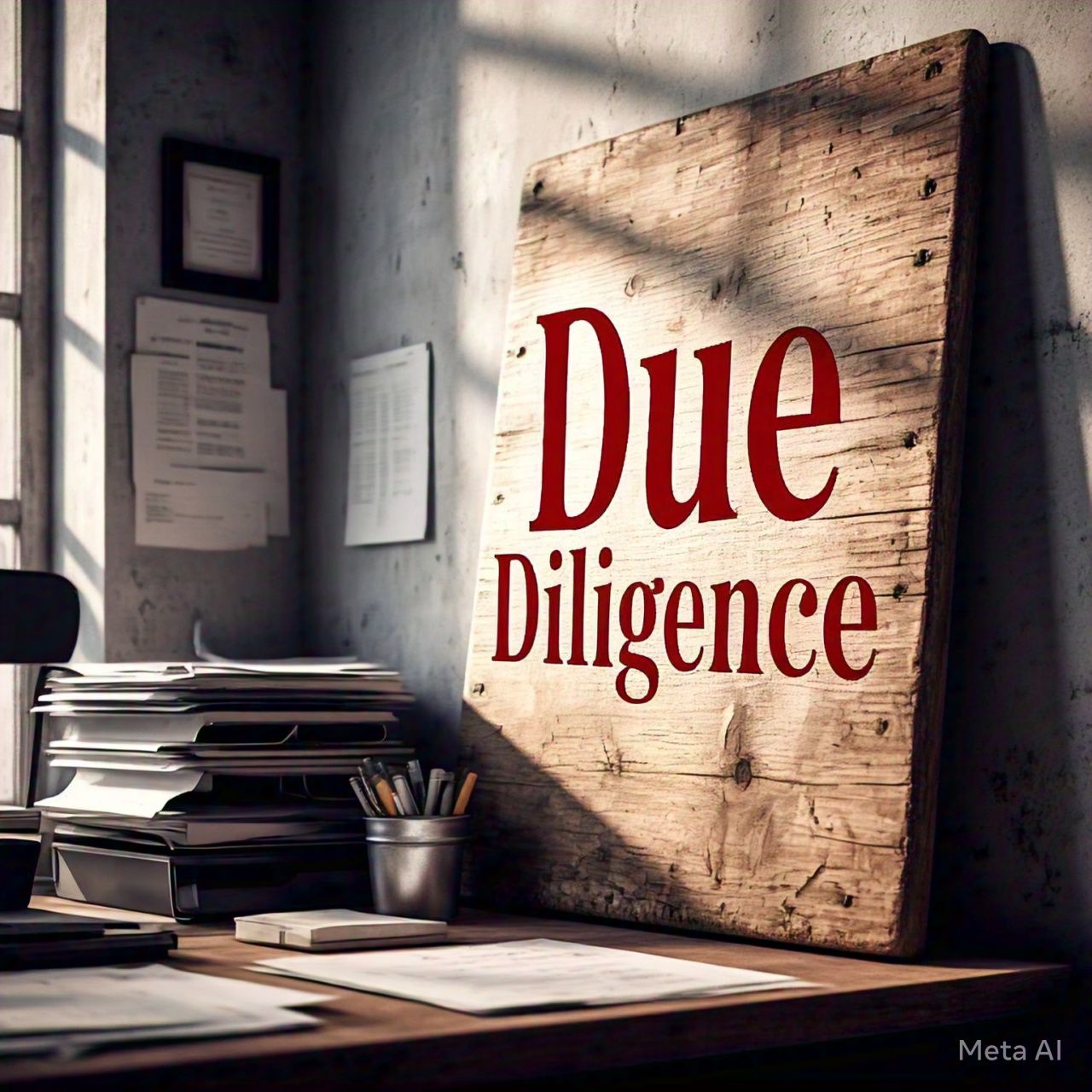.png)
Our customer support team is here to answer your questions. Ask us anything!
Chat with us on WhatsApp

Written By: Flipbz.org
When it comes to purchasing a business, property, or investment, "due diligence" is a term you’ll often hear. It refers to the thorough investigation or audit a buyer performs before finalizing a deal. However, due diligence isn’t just about gathering information—it also involves associated costs. In this guide, we’ll explore due diligence costs, what they entail, and how buyers can prepare for them.
Understanding Due Diligence
Due diligence is the process of verifying and evaluating the risks, financial health, and legal standing of an asset before purchasing it. Whether you’re acquiring a small business, a real estate property, or a company’s shares, due diligence ensures there are no hidden surprises post-purchase.
This process often involves examining financial records, contracts, compliance documentation, and market trends. Due diligence protects buyers from making uninformed decisions and helps them understand the true value of what they’re purchasing.
---
Due diligence costs are the expenses incurred during the investigation phase of a transaction. These costs can vary significantly depending on the complexity of the deal, the type of asset being purchased, and the professionals involved.
Here’s a breakdown of common due diligence costs:
Hiring experts is often necessary to perform a thorough investigation. These professionals include:
Accountants: To audit financial records, tax filings, and cash flow statements.
Lawyers: To review contracts, agreements, and regulatory compliance.
Industry Experts: To evaluate the market potential or technical aspects of the business or product.
Due diligence may require access to proprietary data, legal documents, or operational records. Administrative costs include fees for copying, printing, and data room access (physical or virtual).
For real estate or tangible assets, inspections are crucial to uncover any physical or structural issues. These costs may include:
Property appraisals
Environmental assessments
Building inspections
For mergers or acquisitions, conducting background checks on the business owners, employees, or key stakeholders may be necessary. This ensures there are no legal or reputational risks associated with the deal.
5. Opportunity Costs
Though not a direct expense, buyers often spend significant time on due diligence, which could result in lost opportunities elsewhere.
---
Due diligence costs depend on the complexity of the transaction. For instance:
Small Business Acquisition: Costs range between $5,000 and $15,000.
Real Estate Purchase: Inspections and appraisals may cost between $500 and $2,000.
Corporate Mergers: Due diligence for large-scale deals can exceed $100,000.
Budgeting for due diligence is critical. Allocate funds to cover professional fees, inspections, and unforeseen expenses. Keep in mind that thorough due diligence may save you far more than it costs by preventing future liabilities.
---
Though due diligence costs can feel like a burden upfront, they are a worthwhile investment for several reasons:
Minimizing Risks: Identifying legal, financial, or operational risks helps you avoid costly mistakes.
Negotiating Leverage: Insights from due diligence can help you negotiate a better price or favorable terms.
Ensuring Compliance: Verifying compliance with laws and regulations protects you from legal troubles down the line.
---
1. Prioritize Key Areas: Focus your budget on the most critical aspects of the deal, such as financial audits or legal reviews.
2. Use Technology: Virtual data rooms and automated tools can streamline the due diligence process and reduce costs.
3. Hire Trusted Professionals: Work with experienced accountants, lawyers, and consultants who specialize in your industry.
4. Negotiate Terms: Discuss who bears the due diligence costs with the seller—it’s sometimes possible to share or offset expenses.
Due diligence is a critical step in making informed purchasing decisions, but it comes with its costs. Understanding these expenses and preparing for them ensures you’re not caught off guard during the process. By budgeting wisely and seeking professional help, you can mitigate risks and make confident investments.
Whether you're buying a business, property, or company shares, due diligence costs are an investment in your peace of mind and financial security.
Please register to comment.
With these components in place, your business...
Open the Listing model file located in the ap...
Discover promising partnership opportunities in various industries.
Pitch Your Startup | Find Partners
Comments